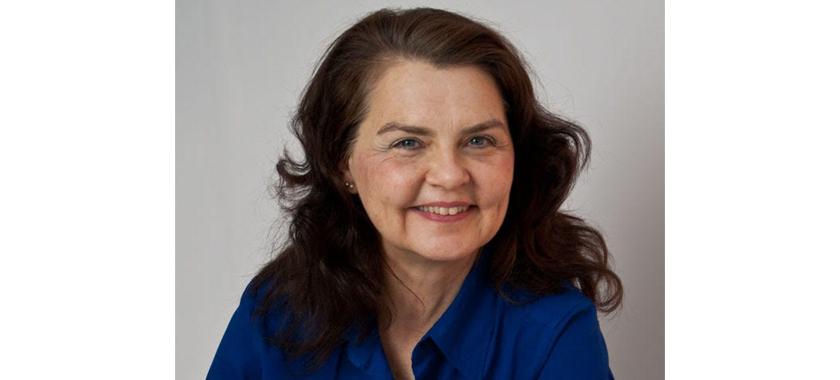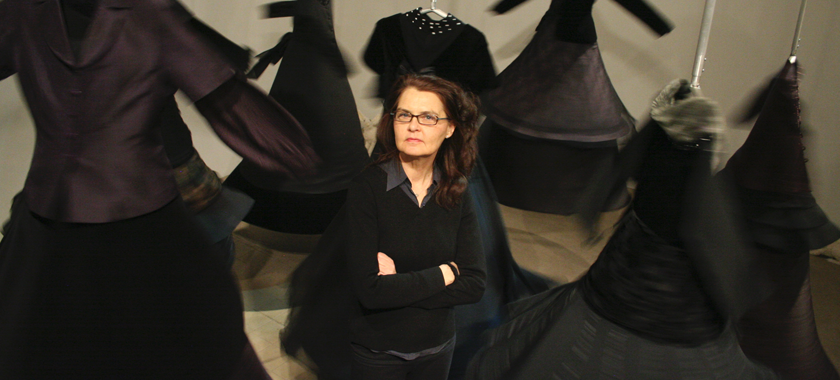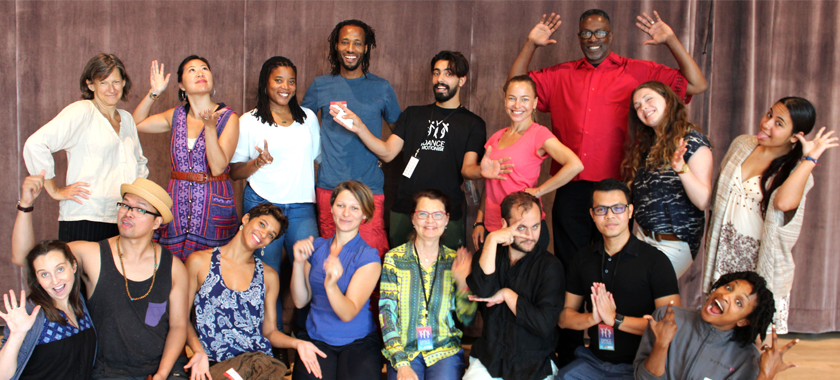
Alyson Pou on Building a Sustainable Life and Career in the Arts
The artist, arts professional, and advocate brings her multi-faceted expertise to you below and through new 1-on-1 NYFA Coaching sessions.
Alyson Pou is a multidisciplinary artist, arts professional, and advocate passionately committed to working with artists and organizations to help them realize their vision and purpose. Pou formerly served as Director of Programs and Services and Founding Director of the Professional Development Program at Creative Capital, overseeing an awards process of more than $12 million to 242 artists’ projects and creating a professional development program that provided business and life management skills to more than 15,000 artists in 700 communities nationwide.
She is also the newest addition to our NYFA Coaching roster, offering:
- A four-part “Building a Sustainable Life and Career” package
- An individual “Building a Sustainable Life and Career” discovery session
- An individual “Getting it Done: Tackling Your Arts Project” session
Through NYFA Coaching, Pou is available to wide range of artists and arts professionals to help them articulate their own vision and purpose, set goals, and implement for success using practical management skills and strategies.
We spoke with Pou about her arts advocacy work, how small changes in thinking and action can yield big results, and how defining success in your own terms helps bring clarity to your life and work.
New York Foundation for the Arts (NYFA): How does your experience of both being an artist and working with artists inform your coaching?
Alyson Pou: Being an artist and working with arts organizations has given me the opportunity to develop an understanding that bridges both groups. This has made it possible for me to advocate for artist-centered programs and policies and provide an artist’s perspective within organizations. On the other hand, I can help artists understand and work with organizations so that they come to the table with confidence as a professional and potential partner.
Being an artist and working with arts organizations has given me the opportunity to develop an understanding that bridges both groups.
-Alyson Pou
I have always been interested in what it means to be an artist. How do we take on that identity as individuals and as a community? How is being an artist defined for us and how do we define it for ourselves? How are we perceived by the broader culture? What is the difference between the reality of being an artist and the mythologies that misrepresent artists? I wanted to understand the challenges artists face and also understand the systems in which we operate.
I think because I came of age during the feminist movement of the 1960s-70s, I was very attuned to the importance of claiming agency and challenging assumptions. It was a time when artists took representation into their own hands and created collectives and artist-driven organizations all over the country. Making the decision to be an artist and an arts worker (to work for and with arts organizations and at the same time be a practicing artist) gave me the opportunity to learn so many skills that artists didn’t have access to, and in fact, were actively taught to reject.
For example, for many decades in the Fine Arts Departments of schools across the country, any focus on life management or business skills was completely rejected. If you were truly a talented artist none of that should matter. Sacrifice and suffering were proof of true artistic commitment. Students were not prepared for life after graduation. This never made sense to me. It is like launching a person into a fast-moving river in a boat without a paddle.

NYFA: You initiated Creative Capital’s professional development programming with the conviction that artists need to know things like strategic planning, marketing, and fundraising.
AP: In the early days at Creative Capital, we were looking at the dynamics and relationship of artists to philanthropic funding models. We were interested in creating long-term partnerships with artists that would not only support their proposed project, but also help them attain career stability and longevity.
Placing attention on the needs of the artist as the valued creator of a lifetime of art lead me to realize strategic planning, marketing, and fundraising—all the business and management skills I had learned on the job—were foundational skills that artists could use to create sustainability for themselves not just for one project but for a lifetime.
Placing attention on the needs of the artist as the valued creator of a lifetime of art lead me to realize strategic planning, marketing, and fundraising—all the business and management skills I had learned on the job—were foundational skills that artists could use to create sustainability for themselves not just for one project but for a lifetime.
-Alyson Pou
These skills can be taught in an artist-centered way by artists, for artists. An opportunity for artists to help themselves, and over the long-term build relationships and a strong sustainable community of artists together.
NYFA: Can you share an example of how this type of learning can transform artists’ lives?
AP: Small changes in thinking and action can bring big results.
Through the coaching process around communications skills a filmmaker identified her extreme discomfort around attending arts events like openings, conferences, screenings, and so on. She was very shy about meeting people and talking about herself and her work and dreaded the question “What do you do?”
She started challenging her extreme discomfort with a plan. She committed to attending two events per week where she would not leave before talking with at least two different people about her work and giving them her card. She met someone on her first outing who, hearing about the topic of her documentary, offered to introduce her to a foundation that they thought would be a good funding match. This introduction eventually led to a funding partnership, but more importantly the interaction encouraged her to keep going. Her pitches for funding and with presenters increased and got better. She also took on teaching and public speaking opportunities.
Another example is from a NYC workshop break-out group on the topic of owning real estate. All seven attendees had no relationship to owning real estate and believed they would never be able to afford it.
Within a year, all seven owned or were in the process of purchasing. One artist applied for and won a housing lottery within three months and was in their new home in six months. Another teamed up with their partner to purchase a place from a relative, and yet another artist decided they wanted to divest of material possessions and completely live off grid on a remote property.
Their approaches were all very different but what they all reported back and shared in common was a shift in thinking from “this can never happen” to “this is possible.” Additionally, they all began an active process of assessing their financial situation and doing research on real estate. For example, the housing lottery winner noticed a flyer in their local bodega and instead of passing it by, they applied.
These are just a couple of examples among hundreds of outcomes reported by artists across the country.
It has been exciting over the years to see hundreds of individuals transform their lives and share what they have learned with each other.

NYFA: What does it mean to “define success on your own terms” and why is it important for creative people specifically?
AP: Creating the life you want for yourself begins with defining success on your own terms.
I think we all have been indoctrinated to ideas about what it means to be a “successful artist.” These ideas may or may not be what we really want for ourselves.
An example: “Success means having a gallery to represent you.” But is the reality of securing and working with a gallery what you really want? Take the time to research and discover if this is the right pathway for you.
Ironically, creative people can get very stuck in rigid ideas about success. But true success is creating a life that is unique to you with a purpose and process you want to engage with every single day. There is no standard template for how that should look.
True success is creating a life that is unique to you with a purpose and process you want to engage with every single day. There is no standard template for how that should look.
-Alyson Pou
Defining success on your own terms also clarifies the reason for using all those business skills like financial management and grant writing that frankly many of us wish we never had to deal with. The truth is even when someone else is working on your behalf, you always need to be involved. Because it’s your life and you own it.
NYFA: What general advice would you give to artists and creatives out there, that they may not have heard before but that you feel is important?
AP: We need you. We need your creative expression, intelligence, and generosity. You matter. Your presence in the world, your voice, is needed now more than ever.
NYFA: Who would best benefit from the “Building a Sustainable Life and Career” four-part series? Similarly, who might best benefit from your single session “Getting it Done?”
The series is good for identifying priorities and goals and then developing a plan of action that will move you toward those goals—long-term planning, short-term actions. The single session, “Getting It Done,” is good if you already know a specific thing you want to accomplish in a designated amount of time like a grant narrative, budget, or artist statement.
Interested in booking a session with Alyson?
Book NowAbout Alyson Pou:
Alyson Pou is a multidisciplinary artist, arts professional, and advocate passionately committed to working with artists and organizations to help them realize their vision and purpose. She offers consultation and coaching for a wide range of artists and arts professionals to help them articulate their own vision and purpose, set goals, and implement for success using practical management skills and strategies.
During her tenure at Creative Capital, a national organization that supports the work of innovative artists, she played a key role in developing its programs. As Director of Programs and Services, she created and implemented the Artist Services Program and oversaw the awards process for more than $12 million in grants to 242 artists’ projects. As Founding Director of the Professional Development Program, she designed and implemented an education model to provide business and life management skills for artists in all disciplines. Under her leadership, the program partnered with over 100 arts organizations nationwide to help more than 30,000 artists in 700 communities pursue their creative purpose and career goals. During her years at Creative Time Inc., she commissioned and produced hundreds of ambitious public art projects throughout NYC.
Pou maintains an active artistic practice of installation work and performance that is deeply rooted in storytelling and women’s history, making use of movement, text, and objects to create an immersive visual and theatrical experience. Her work has been presented in New York City at The New Museum, The Bronx Museum, Artists Space, Performance Space 122, and Danspace Project at St. Marks. Pou has received grants from Art Matters, Inc.; NYC Department of Cultural Affairs; and the National Endowment for the Arts; with commissions from Deutsche Bank and the Atlanta Arts Festival. She has lectured at numerous museums, galleries, art centers, and colleges around the country. She is also the recipient of the New York Dance and Performance Award (aka The Bessie Award) in the category of Choreographer/Creator.
This program is part of NYFA Learning, which includes professional development for artists and arts administrators. Sign up for NYFA’s free bi-weekly newsletter to receive updates on future programs.